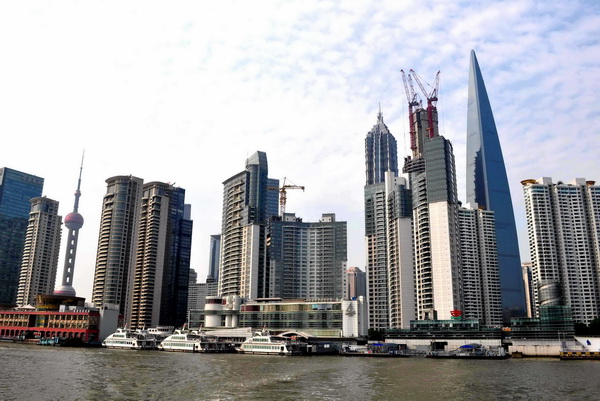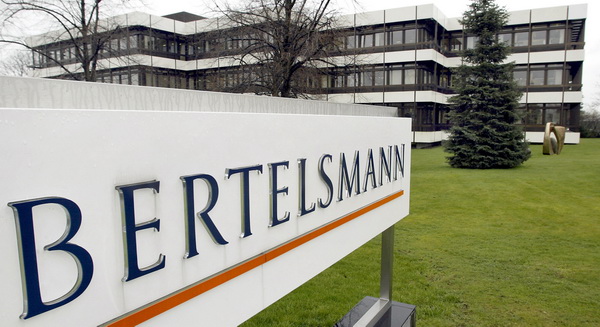

Highlights from the EO print edition, No. 620, May 20, 2013
SASAC's Special Team to Save SOEs
News, page 1
~ Earlier this year, the State-owned Assets Supervision and Administration Commission (SASAC) instructed the more than one hundred state-owned enterprises (SOE) under its supervision that it expects them to achieve profit growth of over 10 percent in 2013. The supervisory agency also announced that it was establishing a special working group to help some of the centrally-administered SOE reach this ambitious target and deal with some of the challenges that they're facing.
~ This is one of the first moves that Jiang Jiemin (蒋洁敏), the new director of SASAC, has made since he took office earlier this year. An official from SASAC told the EO that the new team will not offer assistance to all the SOEs operating under SASAC's remit, noting that they would instead "put the focus on companies with huge losses and also on those big companies making big profits."
~ Anshan Iron & Steel Corporation is one of those state-owned companies that has been posting huge losses in recent years, posting a net loss of almost 4.2 billion yuan in 2012. The company's general manager attributed these losses to the domestic and international economic environment, overcapacity in the steel industry, lack of demand, a heavy historical burden and other factors. The company hopes that SASAC can provide it with both policy and capital support.
~ An official from SASAC told the EO that they would be willing to provide appropriate policy support but they won't be helping these large state-owned companies get access to loans from financial institutions.
~ SASAC is currently under a lot more pressure than it has been over the past few years. April's macroeconomic indicators came in below the expectations of many economists and some investment banks have been lowering their GDP growth forecasts for 2013. As the general economic outlook begins to cloud, central SOEs are being pressured to step up and take on the role of maintaining overall economic growth.
Original article: [Chinese]

Pudong's Lost its Entrepreneurial Zeal
Nation, Page 13
~ Pudong District of Shanghai welcomed Shen Xiaoming (沈晓明) as its new party secretary on May 13 at a time when the area faces a critical juncture. Shen was previously vice mayor of Shanghai after working in the in the health sector for almost 20 years. He was known for having led Shanghai's medical reform.
~ In 2010, Pudong's position as China's leading economic development zone was challenged by Tianjin Binhai New Area. At the time, Binhai New Area's GDP was 20 billion yuan more than Pudong's, which expanded to 120 billion in 2012.
~ Pudong is now sometimes likened to a "second-generation rich" (富二代). Shen Hanyao (沈晗耀), director of the Shanghai Warton Economic Institute, said that Pudong's biggest problem is a lack of entrepreneurial zeal. It's become too proud of what it already achieved and isn't moving forward. Shen says that relying on itself rather than on central government policies is why Pudong achieved glory in the past. However, now the situation is reversed. "That's why Shanghai doesn't have innovative enterprises like Shenzhen's Tencent and Huawei," Shen said.
~ To restore its entrepreneurial zeal, Pudong's local government needs courage to face the risk of innovation. 2013 is the last year of Pudong's third round pilot reform aimed at promoting comprehensive and sustainable development. Shen Xiaoming will face challenges in all sectors.
Original article: [Chinese]

State Council to Fight Local Protectionism
News, page 2
~ The State Council is taking measures to curb local protectionism, which will be jointly carried out by several of its major ministries. "We will work out a schedule before late 2013 to solve some prominent problems and set up a long-term mechanism in 2014," said an official from the Ministry of Commerce.
~ According to statistics from the Ministry of Commerce, local protectionism concentrates on industries and corporations that pay a lot of taxes to local governments and hire a large number of local employees. Local governments will block enterprises from other regions from entering their market or investing in their companies. This is especially prevalent in industries like meat, liquor, automobiles, cigarettes, pharmaceuticals, chemical products and building materials.
~ A researcher from the National Development and Reform Commission (NDRC) said, "Breaking up the regional blockades and industrial monopolies is like asking local governments to perform surgery on themselves."
~ There have been reforms aimed at stopping this type of protectionism in the past. In April 2001, the State Council set a policy ordering local governments to change or cancel policies that set up these "regional blockades" for keeping out companies and investment from other regions. Further reform came after China joined the WTO later that year.
~ At present, large companies with branches across the country are often forced by local governments to pay local taxes wherever they have branches, which can vary widely from region to region. Companies complain that this complicates their operations, requires them to hire more staff and discourages them from moving into certain regions. The official from the Ministry of Commerce said that the upcoming reform will establish a system for enterprises to simply pay their taxes in the city where they're headquartered.
~ "To make enterprises pay taxes through their headquarters is essential to breaking up regional blockades," said the official from the Ministry of Commerce. "That's why the State Council is having the Ministry of Commerce and the State Administration of Taxation lead the reform together."
Original article: [Chinese]

PV Companies Prepare for EU Anti-Dumping Measures
Corporation, page 29
~ The EU's trade authority may levy anti-dumping tariffs averaging 47 percent on photovoltaic (PV) products from China in an attempt to combat what it sees as unfair pricing. This is part of a broader dumping and subsidies inquiry that began last September – the largest ever such probe by the European Commission. The potential tariffs are opposed by China's Ministry of Commerce and Ministry of Foreign Affairs, as well as the Association for Applied Solar Energy (AFASE) in Europe.
~ Preliminary rulings will be made by June 6 on the anti-dumping case and Aug 8 for the anti-subsidy case. The larger probe will end by December this year, at which point tariffs may be locked into place for five years.
~ No companies in China has received any documents from the EU, but the industry has already begun making preparations.
~ In early April, led by Yingli Green Energy Holding Company Ltd., Trina Solar Limited and Canadian Solar Inc. held a teleconference. The chairmen of the three companies agreed that, besides continuing to work with AFASE to negotiate with the European Commission, they would consult with senior officials from the Ministry of Commerce.
~ At a May 12 meeting, the chairmen made their proposals to strengthen negotiations between governments, calmly solve the anti-dumping and anti-subsidy case, promote national certification standards, launch supportive policies as soon as possible, and guide financial institutions to support key PV enterprises.
~ Apart from voicing protests through AFASE, PV installation enterprises in Europe have started to quickly buy up Chinese PV products.
~ Insiders say that the anti-dumping measures may accelerate the consolidation of enterprises in China's already struggling PV industry.
Original article: [Chinese]
Companies Race for Slice of China's Car Rental Industry
Auto, page 35
~ Because of soaring demand, it's becoming very difficult to rent a car in China these days; especially during the holidays. Chinese car rental companies and their investors are excited about the booming new industry, while auto makers are also taking an interest in the market. Some multinational auto companies have realized there might be an opportunity in China to introduce the "rent-to-own" model, meaning buyers can rent a car for several years until they eventually own it.
~ Automakers like Volkswagen, Mercedes-Benz and Toyota have all set up their own car rental companies. Last year an official from the Ministry of Commerce said some of the restrictions on the car rental business will be lifted in the future as the industry's growth is expected to accelerate.
~ Roland Berger Strategy Consultants published a report last year in which it predicted that China's car rental market could grow to 39 billion yuan in 2015 – up from 20 billion in 2011 -with an average annual growth rate of 18 percent. China's independent car rental companies like eHi Car Service (一嗨) and China Auto Rental Holdings Inc. (神州租车) are busy expanding as foreign automakers step into the market.
~ The biggest challenge for China's car rental business is inadequate laws and regulations. At present there are no national laws in the sector. The Ministry of Transportation and some local governments have introduced temporary regulations over the past few years, but none are enforceable any longer. Another problem is China's need for a better credit system.
Original article: [Chinese]

Bertelsmann's Back
Corporation, page 28
~ The German mass-media company Bertelsmann shut down its chain of book stores in China in 2008 after suffering losses. But now it's re-emerging in the country with new investments, services and subsidiaries.
~ Bertelsmann has begun a transformation from focusing on publishing to offering more multi-faceted services, recognizing that digitization is the wave of the future. Its income from selling copyrights has reached $2.2 billion per year and programs in its portfolio now include China's Got Talent and X-Factor. This year Bertelsmann's TV programming company Fremantle Media will also work with Shanghai Media Group (SMG) to launch the television singing competition Chinese Idol.
~ Arvato, a Bertelsmann subsidiary, earned 4.4 billion euro last year, largely from China, by providing business process outsourcing services to industries like cosmetics, automobile manufacturers, banks, airlines and hi-tech companies.
~ Bertelsmann's Gruner + Jahr is Europe's largest printing and publishing firm. Several of the firm's magazines and new media products are now sold in China.
~ In the past five years, Bertelsmann Asian Investments (BAI) has also invested in 20 Chinese e-commerce companies, including Mogujie.com and Douban.
Original article: [Chinese]


